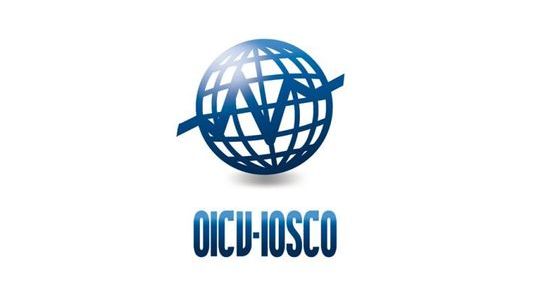Responsible investment for institutional investors in hedge funds - an event summary
By Justin Sloggett, Senior Manager, Investment Practices and Marisol Hernandez, Manager, Investment Practices, United Nations Principles of Responsible Investing
Published: 13 April 2017
On 3 November a group of institutional investors, hedge fund managers and consultants, with the support of the Principles for Responsible Investment (PRI), APG Asset Management, the Alternative Investment Management Association (AIMA), Ropes & Gray and the Chartered Alternative Investment Analyst Association (CAIA), met together in a conference in New York.
The aim of the conference was to dispel some of the misconceptions about the incorporation of responsible investment (RI) in hedge funds, its application in the due diligence process, and the main challenges faced by the industry. The key takeaways are detailed below.
What is RI in hedge funds?
Investors are beginning to incorporate responsible investing criteria in their hedge fund allocations. Forward-thinking hedge fund managers already apply RI practices and some have done so for years.
There is a common misperception that RI is incongruous with hedge fund investing, but this is due to misconceptions surrounding both RI and hedge funds. Investors with limited knowledge of RI practices often refer to it as ‘socially responsible investing’ or ‘ethical investing’ and many believe that RI is purely screening and/or active ownership. They are often not aware of other RI practices, including ESG integration, which the PRI defines as “the systematic and explicit inclusion of material ESG factors into investment analysis and investment decisions”.
Institutional investors who assess hedge fund managers on their RI practices believe that RI investing has two components, which can be easily applied to hedge funds:
■ incorporating ESG data into the investment process and stock valuation (i.e. ESG integration, screening and thematic investing); and
■ active ownership and governance strategies.
They also believe that RI investing can mitigate portfolio risk and enhance portfolio returns.
How are RI practices incorporated into the due diligence process?
Institutional investors invest a great deal of time studying their managers’ investment processes. Increasingly, RI questions are being included in the hedge fund due diligence process. The key questions institutional investors ask include:
■ Does the investment manager have a formal RI policy or other governance mechanism for oversight?
■ Does the investment manager have dedicated employees or other resources in place to facilitate RI incorporation?
■ How does the investment manager integrate ESG factors in its investment decision-making process? Have investment decisions changed as a result of ESG considerations?
■ What transparency and reporting is the investment manager prepared to make available?
■ After the allocation is made, investors then monitor their underlying investment managers to ensure continued adhere to these policies.
Investors’ expectations
Investors with a RI mandate are looking for investment managers that systematically integrate ESG issues into their investment process, valuation calculations, and active ownership practices, and those who continually assess the impact of ESG issues on their portfolio’s risk and return.
These investors want their managers to have a policy in place and be able to demonstrate that this policy is being put into action. Investors agreed there is nothing worse than managers that have a policy and procedures in place which they do not follow.
Investors found that the most successful approach for achieving the incorporation of RI policies and procedures by managers is through having a two-way dialogue with the managers. Whilst managers must be able to demonstrate that they are taking RI seriously and constantly assess and report on their progress, investors should work with the manager to ensure their expectations are clear. This two-way dialogue ensures a productive relationship between investors and hedge fund managers.
Will investors be attracted to funds that are applying ESG considerations?
There is increasing demand from pension funds (private and public), endowments and foundations to have a fully sustainable approach to their investment processes that incorporates RI practices. These investors are attracted to managers that comply with their RI demands and that consider all material factors, including ESG factors, to create better and resilient portfolios. However, it is also critically important that they are not sacrificing returns in the name of RI. According to data[1] presented at the event, 3/4 of investors around the world are incorporating ESG when allocating to alternative investors, and 2/3 are thinking about ESG when they are making hedge fund investments.
However, advanced RI practitioners believe it is extremely short-sighted to incorporate ESG factors into the investment process purely for reputational purposes. Ultimately, investors value managers who consider ESG issues to improve the risk-return trade-off of their portfolio and so help attract clients – not those who treat it as a marketing tool.
What are the challenges faced by the hedge fund industry?
The main challenges faced by investors and managers alike are poor RI data, unclear guidelines and the absence of an independent third party verification.
Hedge fund managers pursue a wide range of diverse investment strategies, some of which are better suited to a formal RI policy. Panellists made clear that no strategy is inherently incompatible with RI, just that some have a greater degree of relevance and as a result, they have a nuanced approach to due diligence. When trading equities, it is very straightforward to think about how ESG factors can be incorporated into an investment process. However, it is much more challenging to incorporate ESG issues into fixed income arbitrage or global macro and CTA strategies. This is particularly true in emerging markets because of price fluctuation and volatility, which can affect the cost of capital, including the cost of food or other agricultural products.
Concluding comments
The hedge fund industry is beginning to take steps to adopt RI policies and report on ESG issues. This is expected to grow as investors step up their demand for RI-compliant hedge fund investments and better data and reporting guidelines become available.
In order for institutional investors to identify managers that can generate enhanced risk-adjusted returns through RI investing, they must dedicate resources to it, ensure investment staff are trained, and incorporate a governance framework to guarantee RI is a real part of the investment process and not just marketing spin.
For their part, investment managers should ensure that RI is an organic part of their investment strategies and approach ESG factors as they approach any other signal – rather than something bolted on in response to an investor request. In this way, they can achieve the enhanced risk-adjusted returns available through RI investing.
The panellists ably demonstrated that RI is not incompatible with hedge fund investing, but we are indeed in the early stages. In the end, it’s the investors and fund managers’ responsibility to close the gap between where the hedge fund industry is now in terms of RI and where it will be in 5 years’ time.
[1] Source: Survey “Global insights on ESG in alternative investing”, March 2015, Mercer and LGT Capital Partners.







